
The United States National Security Council (NSC) is the national security council used by the president of the United States for consideration of national security, military, and foreign policy matters. Based in the White House, it is part of the Executive Office of the President of the United States, and composed of senior national security advisors and Cabinet officials.

Geopolitics is the study of the effects of Earth's geography on politics and international relations. Geopolitics usually refers to countries and relations between them, it may also focus on two other kinds of states: de facto independent states with limited international recognition and relations between sub-national geopolitical entities, such as the federated states that make up a federation, confederation, or a quasi-federal system.
Robert Strausz-Hupé was an Austrian-born American diplomat and geopolitical theorist.
Geostrategy, a subfield of geopolitics, is a type of foreign policy guided principally by geographical factors as they inform, constrain, or affect political and military planning. As with all strategies, geostrategy is concerned with matching means to ends Strategy is as intertwined with geography as geography is with nationhood, or as Colin S. Gray and Geoffrey Sloan state it, "[geography is] the mother of strategy."

Robert David Kaplan is an American author. His books are on politics, primarily foreign affairs, and travel. His work over three decades has appeared in The Atlantic, The Washington Post, The New York Times, The New Republic, The National Interest, Foreign Affairs and The Wall Street Journal, among other publications.

Uzi Arad is an Israeli national security official and scholar.

The Republic of Türkiye and the United States of America established diplomatic relations in 1927. Relations after World War II evolved from the Second Cairo Conference in December 1943 and Turkey's entrance into World War II on the side of the Allies in February 1945. Later that year, Turkey became a charter member of the United Nations. Since 1945, both countries advanced ties under liberal international order, put forward by the US, through a set of global, rule-based, structured relationships based on political, and economic liberalism. As a consequence relationships advanced under G20, OECD, Council of Europe, OSCE, WTO, the Euro-Atlantic Partnership Council, IMF, the World Bank and Turkey in NATO.
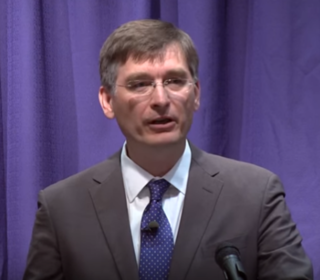
Jakub J. Grygiel is an Ordinary Professor of politics at the Catholic University of America and fellow at The Institute for Human Ecology. He is a senior advisor at The Marathon Initiative and a Visiting National Security Fellow at the Hoover Institution. He is also a book review editor for Orbis. In 2017-2018 he was a senior advisor to the Secretary of State in the Office of Policy Planning working on European affairs. Before joining the Department of State, he was George H. W. Bush Associate Professor at The Paul H. Nitze School of Advanced International Studies. Grygiel was a Senior Fellow at the Center for European Policy Analysis.
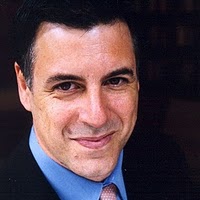
Markos Kounalakis is an American syndicated journalist and scholar who is the second gentleman of California as the husband of lieutenant governor Eleni Kounalakis. He writes a syndicated weekly foreign affairs column for The Miami Herald and McClatchy-Tribune News and is a frequent foreign affairs analyst for CBS News and CNN International.
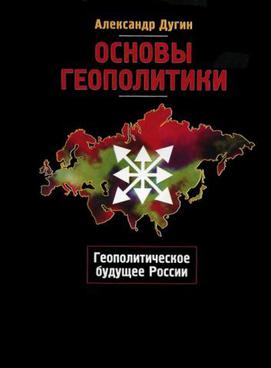
The Foundations of Geopolitics: The Geopolitical Future of Russia is a geopolitical book by Aleksandr Dugin. Its publication in 1997 was well received in Russia; it has had significant influence within the Russian military, police forces, and foreign policy elites, and has been used as a textbook in the Academy of the General Staff of the Russian military. Powerful Russian political figures subsequently took an interest in Dugin, a Russian political analyst who espouses an ultra-nationalist and neo-fascist ideology based on his idea of neo-Eurasianism, who has developed a close relationship with Russia's Academy of the General Staff.
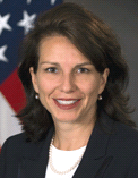
Mary Beth Long is an American foreign policy expert, entrepreneur, and former U.S. Government official. From 2007 to 2009, Long served as the first woman confirmed by the U.S. Senate as an Assistant Secretary of Defense, and as such, was the first female civilian four-star military equivalent in the history of the Pentagon. She led the International Security Affairs (ISA) office in the Office of the Secretary of Defense responsible for policy for the Middle East, Europe, and Africa. She was also the first woman ever to be appointed as Chair of NATO's High Level Group (HLG), the highest-level responsible for NATO's nuclear policy and reporting directly to the Secretary General of NATO.
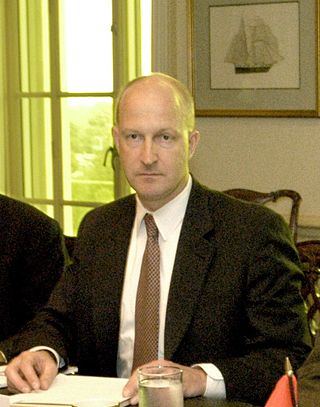
Ian Joseph Brzezinski is an American foreign policy and military affairs expert.
Michael Kane MccGwire was a British international relations specialist known for his work on Cold War geopolitics and Soviet naval strategy. A former Royal Navy commander, he was Professor of Maritime and Strategic Studies at Dalhousie University in Canada and then a Senior Fellow at the Brookings Institution in Washington DC. He was a well-known critic of nuclear deterrence theory.

Professor Alexander Mirtchev, LL.M., Ph.D. is an American academic, executive, author and philanthropist, working in the areas of geopolitics, geoeconomics, global economic security, and political risk analysis and mitigation. He is a vice chair of the Atlantic Council of the United States, where he is also a member of the executive and strategy committees and the advisory council of the Scowcroft Center for Strategy and Security. Dr. Mirtchev is a distinguished visiting professor at George Mason University's Schar School of Government and Policy. Dr. Mirtchev is a founding council member of the Kissinger Institute on China and the United States at the Woodrow Wilson International Center for Scholars, where he served as a senior fellow and member of the Wilson National Cabinet. He served as vice president of the Royal United Services Institute for Defense and Security Studies (RUSI), UK, as well as executive chairman of RUSI International. Dr. Mirtchev is also the president and founder of Krull Corp., a macro-economic geopolitical consultancy.His new book, "The Prologue: The Alternative Energy Megatrend in the Age of Great Power Competition," is published in English, German, Spanish, and Russian.

Elkhan Nuriyev is an Azerbaijani political scientist and a recognized expert in Eurasian affairs, including Russia, Eastern Europe, Caucasus and Central Asia.

Zaur Shiriyev is an Azerbaijani academic in the field of international affairs. He is an Academy Associate at the Royal Institute of International Affairs in London. He was a senior research fellow at ADA University, Baku, where he worked between May 2014 and March 2017. Prior to joining ADA University, he worked as leading research fellow at the Center for Strategic Studies under the President of the Republic of Azerbaijan (2009–14). He founded and has served as Editor-in-Chief of the first English-language academic journal in Azerbaijan, “Caucasus International”, in 2011. Caucasus International was the first English-language foreign policy journal to which academics from all three of the South Caucasus countries contributed. It is rare if not unique for a dispassionate academic journal to be created by and for the main parties to one of the world’s “frozen conflict zones,” which is what the Caucasus certainly is.

Aaron Wess Mitchell is an American foreign policy expert and former diplomat who was the Assistant Secretary of State for European and Eurasian Affairs from October 2017 until February 2019. Prior to assuming the role at State Department, he was president and CEO of the Center for European Policy Analysis. On July 19, 2017, President Donald Trump nominated Mitchell as Assistant Secretary of State for European and Eurasian Affairs.

Julianne Smith is an American foreign policy advisor and diplomat who served as the United States Permanent Representative to NATO in the Biden administration from 2021 until 2024. She previously served as deputy national security advisor to then-Vice President Biden in the Obama administration.
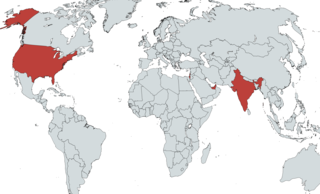
The Indo-Abrahamic Alliance sometimes known as The Indo-Abrahamic Block or The Middle East QUAD or The Western QUAD or West Asian QUAD or I2-U2 is a geostrategic term coined by the foreign policy thinker and grand strategist Mohammed Soliman in use for a long essay for the Middle East Institute. The Indo-Abrahamic term refers to the growing convergence of geopolitical interests among India, Israel, and the United Arab Emirates, which will create a regional bloc that would include Egypt and Saudi Arabia and eventually fill in the gap left by a future US withdrawal from the Middle East and represents a counterbalance to Turkey and Iran. The Biden Administration later adopted Soliman's Indo-Abrahamic concept by launching the I2U2 Group in October 2021, which was followed by a leaders-level summit in July 2022.
















